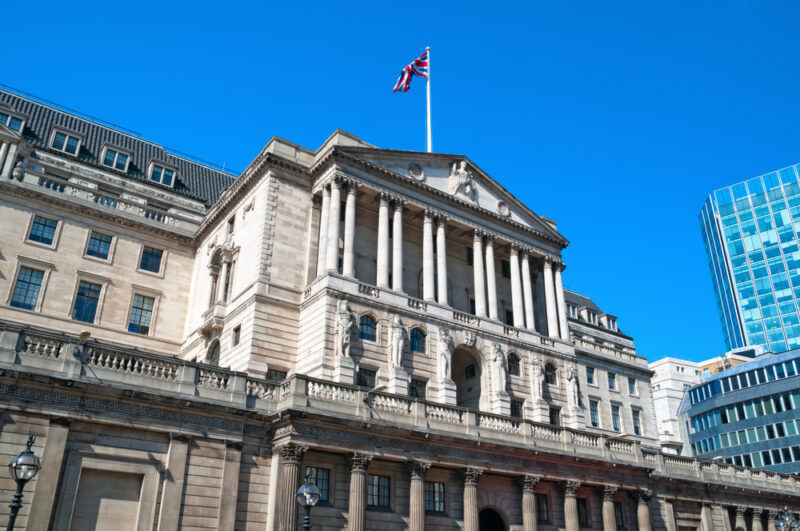The Bank of England, often referred to as “The Old Lady of Threadneedle Street,” has suggested that the increased interest in digital currencies may result in a run on conventional banks. Should this be the case, there is a distinct risk to financial stability as well as the economy as a whole.
The U.K. central bank noted that stablecoins, which are a recently developed digital asset, usually have their value pegged to the value of a fiat currency, in this case, Pounds Sterling. This being the case, stablecoins, should they become a widely used form of currency, would have to be subject to the same regulations as any other form of payment handled by banks.
Stablecoins are Similar to Bitcoin
The most well-known form of digital currency is Bitcoin. In a sense, stablecoins are somewhat like Bitcoin. However, stablecoins do not suffer the wild swings in price as they move in lockstep with currency backed by the government, or by gold, a commodity that is somewhat stable and certainly less volatile.
The many new forms of money that are available are being issued by private entities. However, nothing is stopping central banks from doing the same. The greatest majority of households, as well as businesses, currently use money issued by the Central Bank in the form of cash, as well as private money which is in the form of a deposit in a bank.
The move from the Bank of England comes as a digital currency backed by the internet giant Facebook known as Diem, once known as Libra, plans to launch a stablecoin with its value linked to sterling. Facebook is not just looking at Britain, they are planning stablecoins linked to both the Euro and the U.S.D. as well as a coin destined to be pegged by a basket of global currencies.
New Research Paper
The Bank of England has recently published a research paper that assesses the potential impact of the widespread adoption of new forms of money. The bank notes that, should consumers move their accounts both savings and current away from retail banks into digital assets, there is the distinct possibility that the strength of conventional banks would be undermined.
The research paper put forth a scenario. Should 20 percent of businesses and households move their deposits from traditional sterling to digital money, the cost of operating retail banks would increase as the banks would lose a source of funding. Should this happen, the cost and availability of borrowing would be impacted.
The Bank of England noted that a widespread acceptance and use of stablecoins could impact its ability to determine interest rates. Interest rates are a key tool used by central banks to manage economic growth as well as inflationary pressures. Although the bank went on to say the overall impact on credit provision would more than likely be modest, there remains a significant degree of uncertainty.
The Bank of England is Exploring a Digital Currency
The British central bank is also exploring the possibility of launching its digital currency, dubbed by the bank’s chancellor as “Britcoin.” However, as of now, a decision has not been made one way or the other on whether to proceed. The bank is currently assessing the risks and opportunities of doing so,
The governor of the Bank of England, Andrew Baily, stated the project involving a central bank digital currency and stablecoins needs careful study by not only the central bank but by the government and society. Mr. Baily noted that it is essential that pertinent questions, some of them difficult, be asked, and answered, now.
Some economists in Britain argue that should the Bank of England create a digital currency it would be tantamount to quasi-nationalization of the existing commercial banking sector. This is so as consumers would be in a position to deal directly with the central bank for depositing funds and making payments.
It has been suggested that the role played by conventional banks is an essential part of financial stability. Etay Katz, a partner in the Ashurst law firm notes that a direct relationship between digital money, the central bank, and retail clients can cause a shock in the existing system and it is not clear how banks can adapt.
Others are of the opinion that a digital currency under the central bank would ensure that a sustainable financial system would be built amid the rapid growth of crypto.
WeInvests is a financial portal-based research agency. We do our utmost best to offer reliable and unbiased information about crypto, finance, trading and stocks. However, we do not offer financial advice and users should always carry out their own research.
Read More













